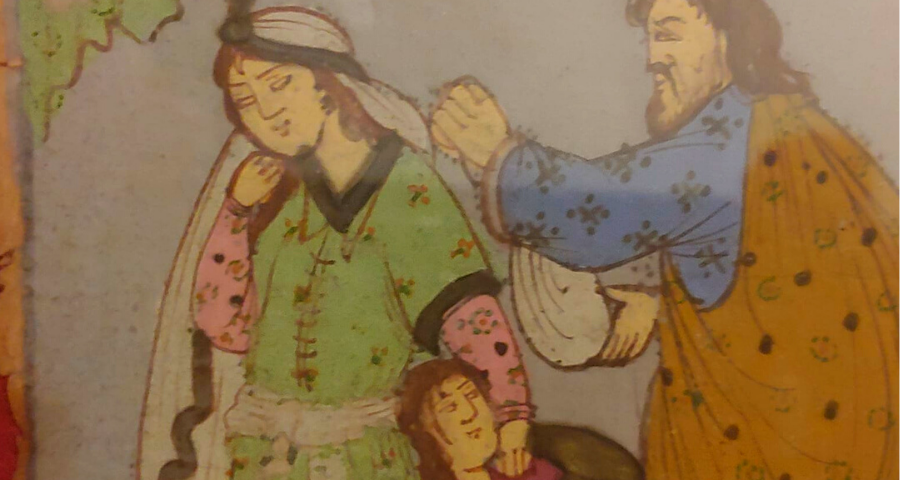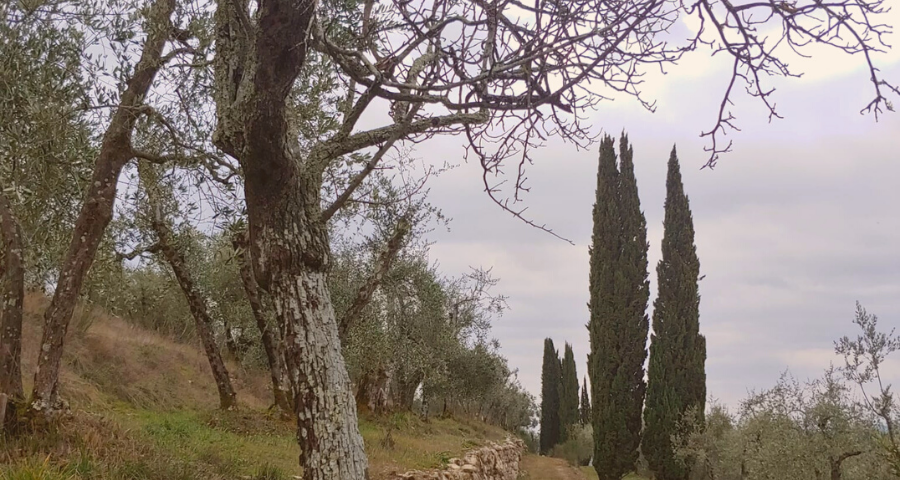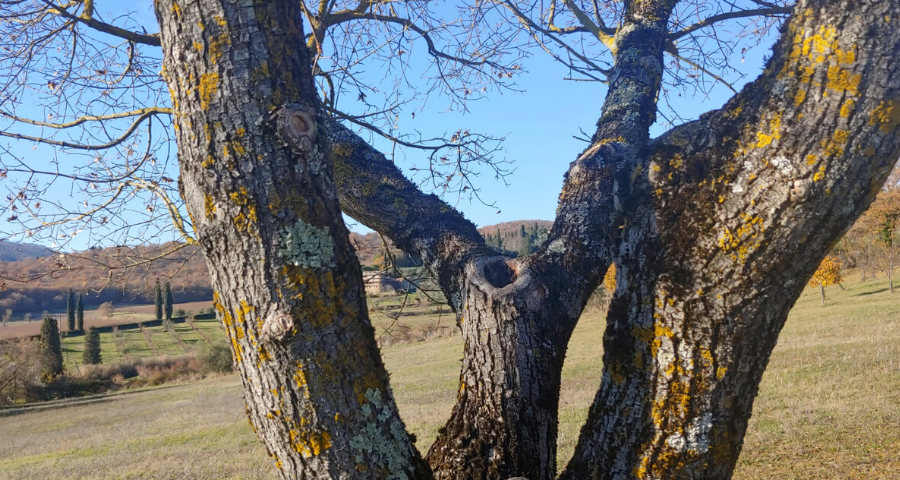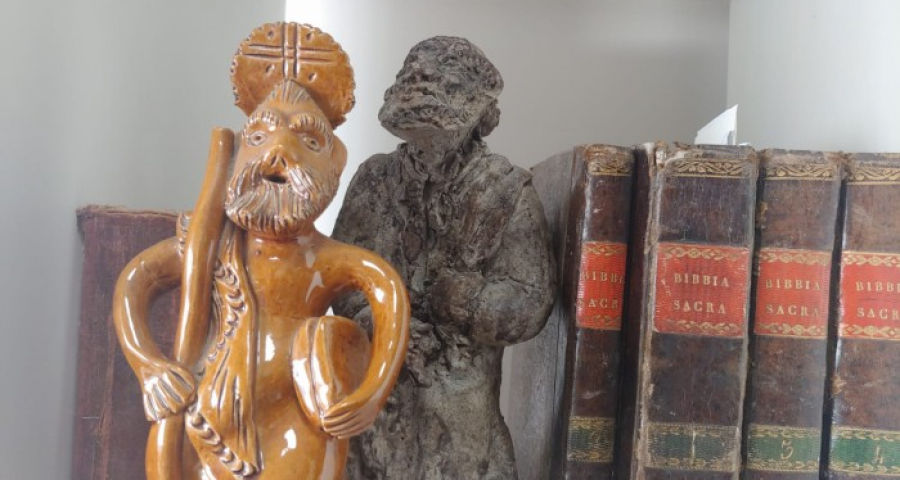The sign and the flesh/3 - God speaks through Hosea and reveals the first reciprocity of earth and heaven to us
By Luigino Bruni
Published in Avvenire 12/12/2021
"In the marriage of the prophet, the man himself appears to us with the secrets of his blood and soul, a man who, precisely for this reason, is also linked to the secrets of God. Such a thing can only be understood from the world of biblical faith, where the blood and soul of the theomorphic man know they are made in his image; and only this makes it possible for man to imitate God".
Martin Buber, The Prophetic Faith
The infidelity of the prophet's wife teaches us the logic of God, letting us learn it within the frame of our primary relationships, which inform us about God by telling us about ourselves.
The Song of Songs and Ecclesiastes are the biblical books where the word "God" is less present. Two books that mirror each other: one on the greatness of human love, the other on the vanitas of life. Ancient tradition attributed both of them to Solomon, because each book emphasized a true and wise dimension of existence, which becomes even truer if read together. Life opens and reveals itself when we experience falling in love and conjugal love, and it opens and reveals itself when we contemplate it vanishing in an aging man, in a dying friend, in the dissatisfaction that accompanies and streaks all our knowledge. When we face the pain that comes from the incompleteness and imperfection of our works or when we contemplate this wonderful world knowing that it will not last forever because one day we will have to leave it. And then, in the face of the greatest love and pain, God withdraws to make room for us, he leaves the word to us, because it is a good word. The prophets are Canticle of Canticles and Ecclesiastes together. I am in their words, I am in their flesh.
«Rebuke your mother, rebuke her, for she is not my wife, and I am not her husband. Let her remove the adulterous look from her face and the unfaithfulness from between her breasts. Otherwise I will strip her naked and make her as bare as on the day she was born; I will make her like a desert, turn her into a parched land, and slay her with thirst. I will not show my love to her children, because they are the children of adultery» (Hosea 2,2-4). In the prophecy of Hosea (and in every true prophecy) the biographical plan and the message for the people are inseparably linked - they can be distinguished here and there, but they cannot be separated. They cannot be separated in Hosea or in us, when our personal events become a message for us and for others; when we hear the voice of God speaking to us inside a non-voice of a wife or husband, when we feel that a different love reaches the non-love of those who should love us and do not, inside of us.
Here, we find ourselves inside a dispute, a rib, similar to the very famous one between Job and God. Hosea, faced with his wife's infidelity, does not immediately choose the path of repudiation and divorce, but tries one last extreme action to bring her back home. In Israel (and to this day) divorce was a point of no return, a definitive act. Hosea hence tries to obtain an industrious repentance from his wife. She calls her children for help and asks them to accuse her because, back then even more so than today, the children who suffered the most serious consequences in a separation.
We do not understand these verses today and it is a good thing that we do not understand them. We do not understand them because, even here, while maturing in history, the Bible has made us overcome its own ethics, making us understand that no person, despite his or her errors and faults, can be "stripped completely naked", reduced "to a desert" and made "to die of thirst". Also, because many people, and among them too many women, still continue to experience separations mainly as a matter of dispossession and a dry desert, and we, unlike Hosea, know that these actions are contrary to man and God. As we know that children must be kept away from their parents' ribs, they should not be incited or pitted against one or the other, because the task of parenting is to protect children from our infidelities, to keep the beautiful image of mum and dad in their hearts to prevent pain and conflicts from corrupting it. They must be protected from our pain - this is perhaps the greatest act of love during and after our separations: to continue, or at least try, blessing in front of them a husband or wife, who instead is cursing us every day.
Being well aware of all this, however, we cannot miss the beauty of these verses written with the ink of the most intimate soul of the prophet, which are among his most beautiful because they are among the most humanly intense in the whole Bible: «Their mother has been unfaithful and has conceived them in disgrace. She said, ‘I will go after my lovers, who give me my food and my water, my wool and my linen, my olive oil and my drink.’ Therefore, I will block her path with thorn bushes; I will wall her in so that she cannot find her way. She will chase after her lovers but not catch them; she will look for them but not find them» (2,5-7). How many times have we not seen Hosea repeat this extreme gesture of his, inside and outside our own home? When we are desperate, we do what we would never have wanted to do. The things we have always criticized in others, things that we disapprove of even in novels and films: we close off the road to her/him with thorns, we set up barriers so as not to let her/him leave the house, we ask for the password to her/his e-mail, we block their bank account. Then we feel ashamed.
«Then she will say, ‘I will go back to my husband as at first, for then I was better off than now’» (Hosea 2,7). To complicate her life, to make her understand that past times were better, to make her regret the early days when we were happy together. But we know that the memory of happy times is not a resource to be used in times of crisis, that reminding the other person today how much we used to love each other yesterday, only serves to increase (not reduce) the desire to escape in those who do no longer feel that love of yesterday today. Having him or her re-read her messages and her love-filled e-mails received yesterday will only push them further away today. Exercising one’s memory, something that can be very effective in many cases, is counter-active for a couple in crisis, if and until the relationship is resurrected - the memory of passed fidelity can only help if nostalgia for the future is reborn. Hosea’s words speak to us because we recognize our own extreme words in them. This is how the Bible saves us, touching us with its good hands. The day will come when, after reading Hosea's beautiful words during the wedding liturgy, we will reread these chapters of his book and we will finally recognize it within our own drama, because our pain will then have become the exegete of his book. And the Bible will continue to act as the good Samaritan bathing our wounds with wine and oil.
The Bible is great because it contains the Canticle of Canticles and this Song of Hosea, side by side, the two songs that mark the rhythm of our life. We are more inclined to think that the words we lend to God to talk to us about ourselves are those of great love and immense joy. Therefore, we tend to forget those other words that arise from our pain, especially from that special one arising from our wounded primary relationships, which broaden the horizon of man and the horizon of God the most. «So now I will expose her lewdness before the eyes of her lovers; no one will take her out of my hands. I will stop all her celebrations: her yearly festivals, her New Moons, her Sabbath days - all her appointed festivals. I will ruin her vines and her fig trees, which she said were her pay from her lovers; I will make them a thicket, and wild animals will devour them. I will punish her for the days she burned incense to the Baals; she decked herself with rings and jewellery, and went after her lovers, but me she forgot!”» (Hosea 2,10-13).
Here, the theme of family betrayal is intertwined with idolatry and with the betrayals of Israel. Every indulged idolatrous temptation is the betrayal of a pact, a covenant. However, every betrayal of a primary covenant is also a form of idolatry, because instead of living within a good and true alliance, the one that saves us, generates life and makes us bear fruit, a smaller form of salvation is chosen instead. Fleeting pleasures are preferred while denying sincerity and transparency, in order to stay in hiding and in the dark. Every betrayal is a desecration of the most beautiful temple to worship wooden puppets in hovels, only to discover in the end that the first and perhaps only puppet we really idolized was our own self. Of course, today we know that we ought to listen to Gomer's version, the wife, as well. Because we have learned from history that to really understand a family crisis we must listen to both versions - the Bible does not care, its message is different; but we should care, because too many people, too many women, are "thrown out" for never having had the chance to tell their side of the story - before men and before God.
Hosea’s personal story also offers us the opportunity to understand a bit more about the metaphors and the language used in the Bible. The Jewish people certainly understood something new about human fidelity by looking at how their faithful God chose, loved and forgave his people; but that same people was able to understand something more about God, about faith and about fidelity by looking at the fidelities and infidelities of their own people. Allegories and metaphors are not only literary techniques, they are not only used to describe with more images and poetry what we already knew about God; no, they are also discoveries about the nature of God by looking at the nature of a relationship, that is, the nature of man, and the nature of woman. Because if it is true, and it is true, that we can discover biblical humanism by looking at biblical theology, it is also true that we learn about God by looking at human beings.
This truth gives immense value to our joys and sufferings, to our created and broken covenants, to our happy and sick relationships, because they are the grammar with which God speaks to us about himself. And he must really give infinite value to family, both when it works and when it falls ill, if in order to talk to us about himself he asked Hosea to tell us about the wounds in his family.
Whenever humanity expands, whenever our spiritual and ethical capacity grows within the contradictions of life, we are also expanding the image of God. And if the Bible makes us talk about our relationships in order to talk to us about God, we should not be surprised if one day we discover that God is relationship, and that we have gotten to know him a little thanks to our own family and relational lexicon. At the highlight of the Divine Comedy, Dante had the extraordinary experience, poetic and mystical at the same time, of seeing his own face in the centre of the Trinitarian dance: «Within Itself, of Its own very colour, to me seemed painted with our Human Form; whence wholly set upon It was my gaze» (Dante, The Divine Comedy, Paradise 33,130-132). If we could enter the Trinitarian dance that takes place in the wine cellar of our own being, we would find, there, in its very colour, the Human Form... of God. This game of mirrors between the Adam and Elohim is what constitutes the first reciprocity of heaven and earth.




